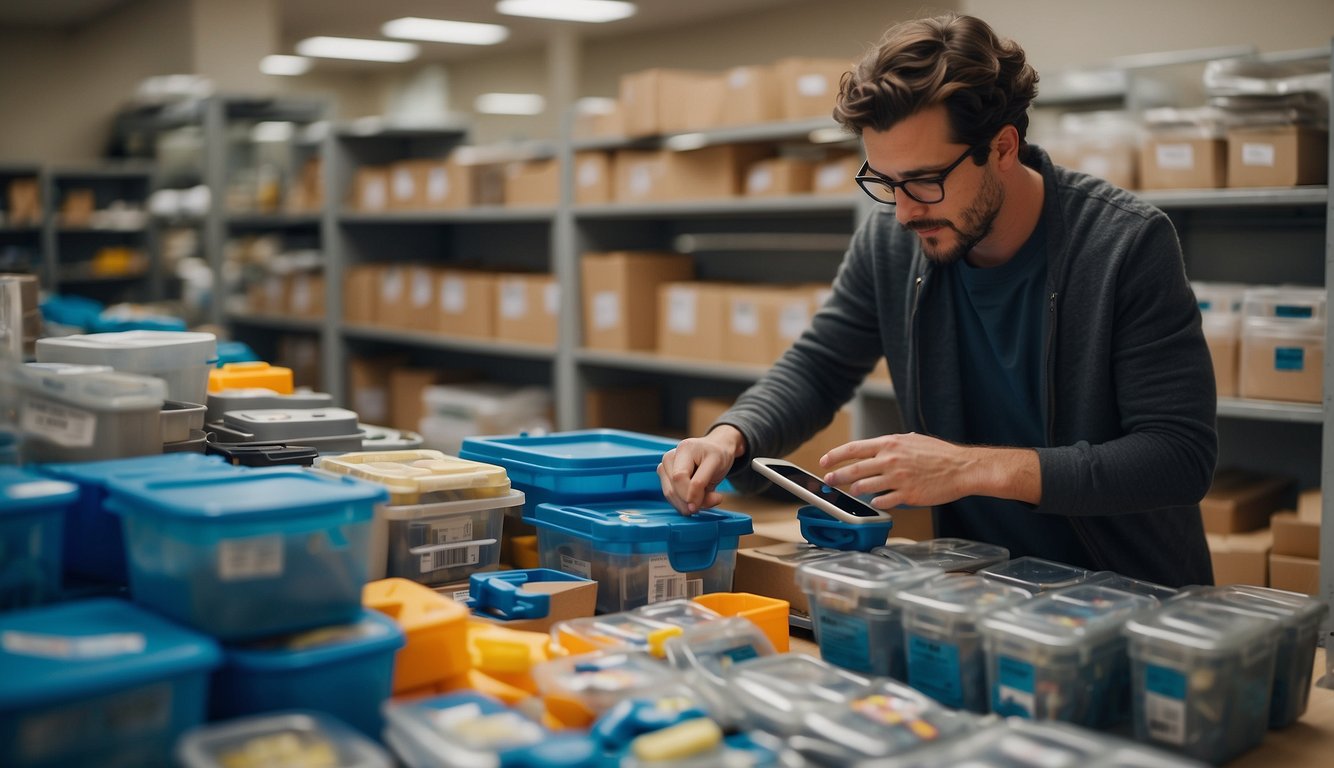
Survival situations can be overwhelming and stressful, making it difficult to think clearly and make rational decisions. This is where survival psychology comes in. It is the study of how people behave and think in extreme situations, and how they can maintain a clear mind and make effective decisions to increase their chances of survival.
Understanding survival psychology is crucial for anyone who may find themselves in a crisis situation, whether it’s getting lost in the wilderness, experiencing a natural disaster, or facing a violent attack. By learning about the mindset and attitudes that can help you stay calm and focused under pressure, you can increase your chances of survival and improve your overall well-being.
In this article, we will explore the key principles of survival psychology and provide practical tips for maintaining mental resilience, managing crisis situations, coping with emotions, and adapting to change. By the end of this article, you will have a better understanding of how to keep a clear mind in a crisis and increase your chances of survival.
Key Takeaways
- Understanding survival psychology is crucial for anyone who may find themselves in a crisis situation.
- Maintaining mental resilience and a positive attitude can help you stay calm and focused under pressure.
- Practical skills for crisis management, emotional coping, and adapting to change can increase your chances of survival and improve your overall well-being.
Understanding Survival Psychology
In times of crisis, it is important to understand how our minds react and respond to stress. Survival psychology is the study of how the mind and body react to life-threatening situations and how to improve our chances of survival.
The Impact of Stress and Adrenaline
When faced with a crisis, the body’s natural response is to release adrenaline, which triggers the “fight or flight” response. This response can cause a range of physical and emotional reactions, including increased heart rate, rapid breathing, and heightened senses. These reactions can be helpful in the short term, but if prolonged, they can lead to exhaustion and impaired decision-making.
Stress is also a major factor in survival psychology. It can impact our ability to think clearly and make rational decisions. In times of crisis, it is important to manage stress levels to avoid becoming overwhelmed.
Common Psychological Responses in Crises
Crises can trigger a range of psychological responses, including anxiety, trauma, fear, and panic. These responses can be normal and are a natural part of the survival process. However, they can also lead to doubt and the normalcy bias, which is the tendency to underestimate the severity of a crisis and believe that things will return to normal.
The incredulity response is another common psychological response in crises. This is the tendency to deny or disbelieve the severity of a crisis, which can lead to delayed action and increased risk.
To overcome these responses, it is important to recognize them and take steps to manage them. This can include deep breathing exercises, positive self-talk, and seeking support from others.
Overall, understanding survival psychology can help you keep a clear mind in times of crisis and improve your chances of survival. By recognizing the impact of stress and adrenaline and common psychological responses, you can take steps to manage them and make rational decisions.
Maintaining Mental Resilience

In times of crisis, maintaining mental resilience is crucial for survival. Here are some ways to cultivate a survival mindset and build confidence and courage.
Cultivating a Survival Mindset
To cultivate a survival mindset, you need to focus on adapting to the situation and maintaining hope. One way to do this is to stay optimistic. Even in the most dire situations, there is always hope. By focusing on the positive aspects of the situation, you can maintain mental strength and resilience.
Another way to cultivate a survival mindset is to develop a survival mentality. This means being prepared for any situation and having a plan in place. By having a plan, you can reduce stress and anxiety and increase your confidence in your ability to handle the situation.
Building Confidence and Courage
Building confidence and courage is essential for maintaining mental resilience. One way to build confidence is to focus on your strengths and accomplishments. By acknowledging your strengths, you can increase your self-esteem and confidence.
Another way to build confidence and courage is to face your fears. By confronting your fears, you can overcome them and increase your mental strength and resilience. This can be done by taking small steps towards your fear and gradually increasing the difficulty.
In conclusion, maintaining mental resilience is crucial for survival in times of crisis. By cultivating a survival mindset and building confidence and courage, you can increase your mental strength and resilience.
Practical Skills for Crisis Management

When facing a crisis, it is essential to have practical skills that can help you manage the situation effectively. Here are some practical skills that can help you keep a clear mind in a crisis.
Effective Decision-Making Under Pressure
In a crisis, you may have to make quick decisions under pressure. Effective decision-making requires a clear mind and the ability to assess the situation accurately. To make effective decisions under pressure, you should:
- Stay calm and focused
- Gather all the facts
- Evaluate the options
- Choose the best course of action
Practice decision-making skills in non-crisis situations to become more confident in your ability to make quick decisions under pressure.
Prioritizing Actions and Maintaining Focus
In a crisis, it is essential to prioritize your actions and maintain focus. You need to identify the most critical tasks and focus your attention on them. Here are some tips for prioritizing actions and maintaining focus:
- Identify the most critical tasks and prioritize them
- Break down complex tasks into smaller, more manageable steps
- Focus on one task at a time
- Avoid distractions and stay focused on the task at hand
By prioritizing your actions and maintaining focus, you can ensure that you are making progress towards resolving the crisis.
Remember, in a crisis, it is essential to stay calm and focused. Practice these practical skills in non-crisis situations, so you are better prepared to manage a crisis when it arises.
Emotional Coping and Self-Care

When faced with a crisis situation, it’s important to prioritize your emotional well-being in addition to your physical safety. Coping with intense emotions can be difficult, but there are steps you can take to manage anxiety and depression, and foster self-compassion and gratitude.
Managing Anxiety and Depression
It’s normal to feel anxious or overwhelmed during a crisis, but prolonged feelings of anxiety or depression can impact your ability to function and cope. If you’re struggling with these emotions, try the following:
- Practice deep breathing or meditation to calm your mind and body
- Engage in physical activity to release tension and boost endorphins
- Seek emotional support from friends, family, or a mental health professional
- Limit exposure to media coverage or social media that may exacerbate feelings of anxiety or depression
Remember that everyone copes differently, and it’s okay to seek professional help if you need it.
Fostering Self-Compassion and Gratitude
During a crisis, it’s easy to become overwhelmed with negative thoughts and emotions. Practicing self-compassion and gratitude can help shift your focus to the positive aspects of your life. Try the following:
- Write down things you’re grateful for each day
- Practice self-care by engaging in activities you enjoy or taking time for yourself
- Challenge negative self-talk and replace it with positive affirmations
- Practice acts of kindness towards yourself and others
Remember that taking care of yourself emotionally is just as important as taking care of yourself physically during a crisis. By managing anxiety and depression, and fostering self-compassion and gratitude, you can keep a clear mind and better cope with the challenges ahead.
Adapting to Change and Building a New Normal

In times of crisis, it is essential to adapt to change and find a new normal. This can be a challenging process, but it is necessary for survival. Here are some tips to help you adapt and build a new normal.
Overcoming Adversity and Loss
Adversity and loss can be devastating, but it is essential to overcome them to move forward. Accepting your situation is the first step towards overcoming adversity and loss. It is okay to grieve, but it is important not to get stuck in your grief. Acknowledge your emotions and seek support from loved ones.
It is also important to focus on the positive aspects of your situation. Look for opportunities to grow and learn from your experience. Try to find meaning in your suffering, and use it to motivate yourself to move forward.
Finding Meaning and Motivation Post-Crisis
Finding meaning and motivation post-crisis can be challenging, but it is necessary for building a new normal. Accepting your new reality is the first step towards finding meaning and motivation. It is important to let go of the past and focus on the present.
Look for opportunities to grow and learn from your experience. Use your newfound knowledge to motivate yourself to move forward. Find a purpose and set goals for yourself. This will give you a sense of direction and help you stay motivated.
In conclusion, adapting to change and building a new normal is essential for survival. Overcoming adversity and loss, and finding meaning and motivation post-crisis are key components of this process. Remember to stay positive, seek support from loved ones, and focus on the present. With time and effort, you can adapt to change and build a new normal.
Frequently Asked Questions
How can one maintain mental clarity during a crisis situation?
Maintaining mental clarity during a crisis situation is crucial for survival. To do this, you should focus on your breathing, stay calm, and assess the situation. Try to stay positive and keep a clear head to make rational decisions.
What are the three components of a survival mindset?
The three components of a survival mindset are knowledge, skills, and attitude. Knowledge refers to understanding survival techniques and strategies, skills refer to the ability to execute those techniques, and attitude refers to the mental and emotional state necessary for survival.
How does a survival mindset differ from a growth mindset?
A survival mindset is focused on the present moment and immediate needs, while a growth mindset is focused on long-term goals and personal development. A survival mindset prioritizes survival over personal growth, while a growth mindset prioritizes personal growth over survival.
What psychological strategies are beneficial for survival in extreme conditions?
Psychological strategies that are beneficial for survival in extreme conditions include positive self-talk, visualization, and mindfulness. These strategies help to maintain mental clarity, reduce stress, and increase resilience.
What is the role of psychological preparedness in survival scenarios?
Psychological preparedness is crucial for survival scenarios because it helps individuals to stay calm, make rational decisions, and maintain mental clarity. Being mentally prepared for a crisis can also help to reduce stress and increase resilience.
How do survival instincts influence human behavior during emergencies?
Survival instincts can influence human behavior during emergencies by triggering fight, flight, or freeze responses. These responses can help individuals to react quickly and effectively in dangerous situations, but they can also lead to irrational behavior if not managed properly.

Leave a Reply